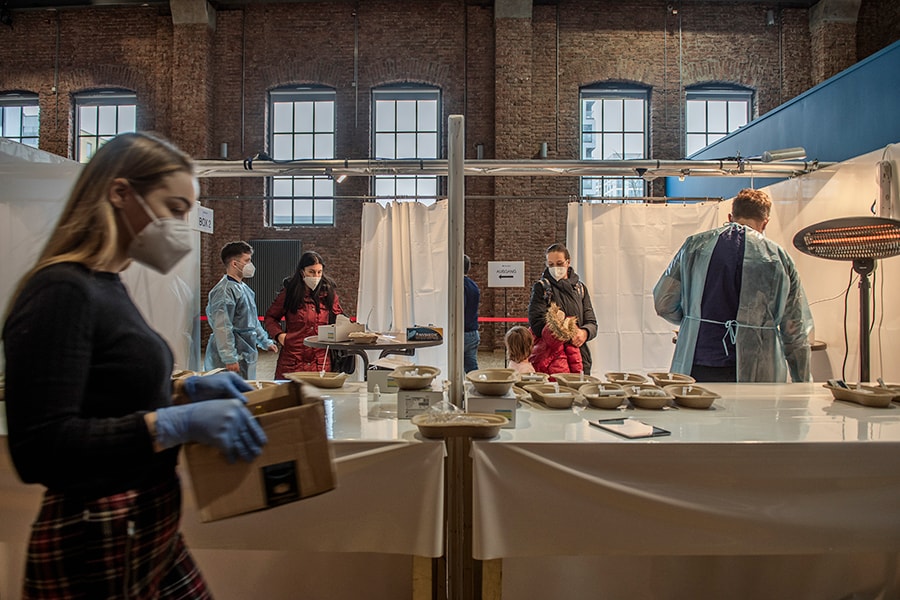
Europe's vaccine suspension may be driven as much by politics as science
No causative link has yet emerged between the AstraZeneca vaccine and blood clots or severe bleeding, and the European Union's medicines agency has said the vaccine should remain in use
 A coronavirus testing center in Munich, Germany, March 15, 2021. Once it became clear Germany was pausing on the AstraZeneca vaccine, the pressure mounted on other governments to hold off too — for fear of seeming incautious and for the sake of a united front.
A coronavirus testing center in Munich, Germany, March 15, 2021. Once it became clear Germany was pausing on the AstraZeneca vaccine, the pressure mounted on other governments to hold off too — for fear of seeming incautious and for the sake of a united front.
Image: Laetitia Vancon/The New York Times
ROME — After days of touting the safety of AstraZeneca’s vaccine, Italy’s Health minister, Roberto Speranza, took a call from his German counterpart Monday and learned that Germany was concerned enough about a few cases of serious blood clots among some who had received the vaccine to suspend its use.
For Italy and its neighbors, that call could not have come at a worse time.
Their vaccine rollouts were already lagging because of shortages, and they were encouraging people to get those shots that were available. Only days earlier, Prime Minister Mario Draghi reassured Italians who had become wary of the AstraZeneca vaccine. “There is no clear evidence, clear correlation, that these events are linked to the administration of the vaccine,” he said.
But once Germany hit pause, the pressure mounted on other governments to do the same, lest public opinion punish them if they seemed incautious by comparison, and for the sake of a united European front.
German’s decision set off a domino effect of defections from the vaccine. A cascade of countries — Italy, France and Spain — soon joined the decision to suspend AstraZeneca, dealing a significant blow to Europe’s already shaky inoculation drive despite a lack of clear evidence that the vaccine had caused any harm.
©2019 New York Times News Service




